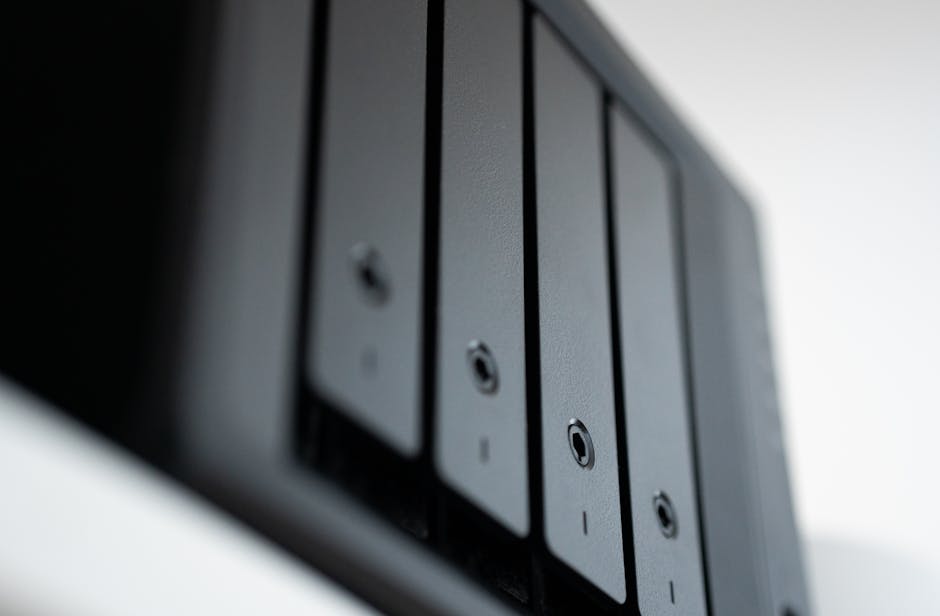How to Back Up Your Data Securely and Effectively
Making sure to back up your data is crucial for safeguarding information against loss, corruption or theft. Whether you're protecting memories such as photos and documents or securing important business files having a well thought out backup plan can help you avoid major headaches and financial setbacks. Data can disappear for reasons like hardware malfunctions, cyber attacks or accidental deletions.

Knowing how to back up your data and efficiently is key to ensuring its long term preservation and accessibility.
Selecting the Right Backup Approach
There are methods for backing up data each with its own advantages and disadvantages. The optimal strategy often involves using a combination of methods to ensure redundancy. Here are some used options;
- External Hard Drives; These are physical devices that connect to your computer via USB. They provide storage space at affordable prices but are susceptible to physical damage.
- Cloud Storage; Platforms like Google Drive, Dropbox and iCloud store your data on servers. This method allows access from anywhere but may be vulnerable, to hacking if not adequately protected.
- Network Attached Storage (NAS); A NAS system enables multiple users to store and retrieve data over a network. It's well suited for households or small businesses. Requires more technical configuration.
Choosing the backup method that suits your needs and strikes a balance between security, affordability and ease of use is crucial.
The 3 2 1 Backup Strategy
The 3 2 1 guideline is a known approach in data protection. It recommends the following;
- Maintain three copies of your data; one copy and two backups.
- Utilize two different storage mediums; such as an external hard drive and cloud storage.
- Keep one copy offsite; whether in the cloud or at a physical location to safeguard against disasters like fires or floods.
Following this rule ensures that if one backup fails or is inaccessible you still have options to recover your data.
Data Encryption and Security Measures
When backing up information prioritizing security is essential. Encrypting your backups ensures that even if unauthorized individuals access them they cannot read the data without the encryption key. While most modern backup solutions come with built in encryption features it's crucial to activate them and use passwords.
Furthermore consider implementing factor authentication (MFA), for cloud based backups.Using factor authentication (MFA) enhances security by not only requiring a password but also an additional form of verification like a code sent to your phone.
| Backup Type | Security Level | Cost | Ease of Use |
|---|---|---|---|
| External Hard Drive | Offers security if encrypted | $50-$200 | High |
| Cloud Storage | Provides high security if encrypted | $0-$50/month | Medium |
| NAS System | Offers high security when configured correctly | $200-$1000+ | Low-Medium |
Maintaining up to date backups is crucial. Establish a backup schedule based on the frequency of changes in your data. While weekly backups may be sufficient for users businesses dealing with constantly changing data might require daily backups. Utilize software with automated scheduling features for convenience.
Avoid depending on manual backups due to the risk of human error leading to missed or incomplete copies. Automated systems mitigate this risk by ensuring data protection without the need, for constant manual intervention.
To ensure the effectiveness of your backups regularly test them by restoring some files to confirm their integrity and accessibility.
Ensuring that your backup process is running smoothly is a step that is often neglected. It's important to keep an eye out for issues like corrupted files, incomplete backups or any glitches in the restoration process. Detecting these problems on gives you the opportunity to resolve them before they escalate into a real disaster.
Safeguarding Your Data for the Future
A secure backup strategy goes beyond simple file duplication; it involves thoughtful planning and consistent upkeep. By choosing methods following best practices such as the 3 2 1 rule encrypting your data for security and routinely testing your backups you can shield your valuable information, from unexpected mishaps. In a world where data losss a constant threat taking proactive measures today can help you avoid major headaches tomorrow.